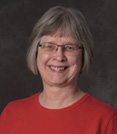Foreword
 Michigan State University has a long history of interest in promoting the healthy development of children and youth. From the establishment of Extension's 4-H clubs more than 100 years ago to the new MSU–Hurley Pediatric Public Health Initiative in Flint, MSU has stood in the forefront of Michigan's efforts to improve life choices and chances for its children and families.
Michigan State University has a long history of interest in promoting the healthy development of children and youth. From the establishment of Extension's 4-H clubs more than 100 years ago to the new MSU–Hurley Pediatric Public Health Initiative in Flint, MSU has stood in the forefront of Michigan's efforts to improve life choices and chances for its children and families.
From then-and-there to here-and-now, a wide array of MSU programs and initiatives has targeted every aspect of child and youth development. Some of these programs, like the one on preventing childhood obesity featured in this issue of The Engaged Scholar Magazine, are part of a long-standing research trajectory. Others, such as an app developed to help teens manage diabetes and an early education program for children with autism, also featured here, reflect an approach made possible by recent advances in technology and in understanding of the psychological as well as the medical ramifications of disease.
We look at the social and educational development of youth in stories about an innovative literacy and music composition program in Detroit, a program that is helping K-12 students in Lansing strengthen their cultural identity, and a new curriculum for bringing tough conversations about power and racial identity into the classroom.
We also hear commentaries from a law professor who specializes in advocating for nontraditional families and an expert on the interplays between risk and resilience as children grow and develop into full members of society.
All of the research, teaching, and service programs reported here depend heavily on partnerships within the communities where they take place to achieve mutual goals of academic learning and community empowerment. And our partners are often quite clear about what they value and want from the University.
James Averill, the state veterinarian of Michigan, who is currently involved in a collaboration with MSU Extension to alert young 4-H'ers to the dangers of animal-human disease transfer, said it best. Addressing faculty who might be open to partnership opportunities, he observed: "Just be present, doing what you do best—ask questions, be a listening ear. New partnerships can result. I like that old quote, 'The world is run by those who show up.' So be out there. Make that connection."
We hope this issue of The Engaged Scholar Magazine inspires you to think about how you might become more active in the MSU engagement enterprise.
- Written by Linda Chapel Jackson, University Outreach and Engagement